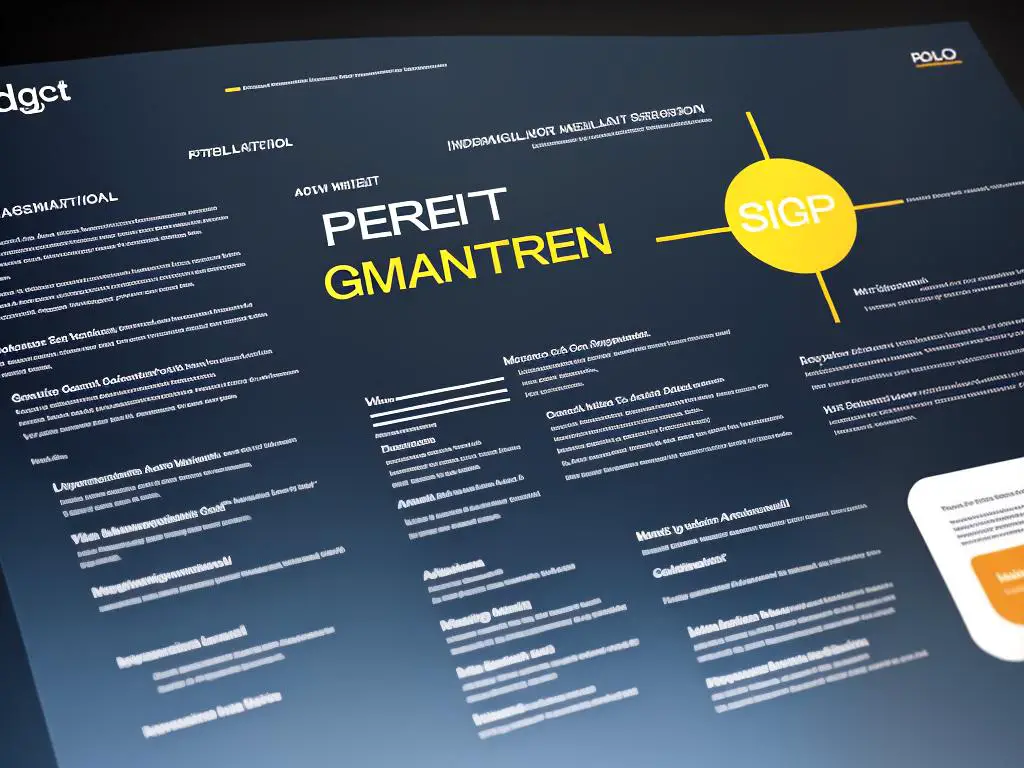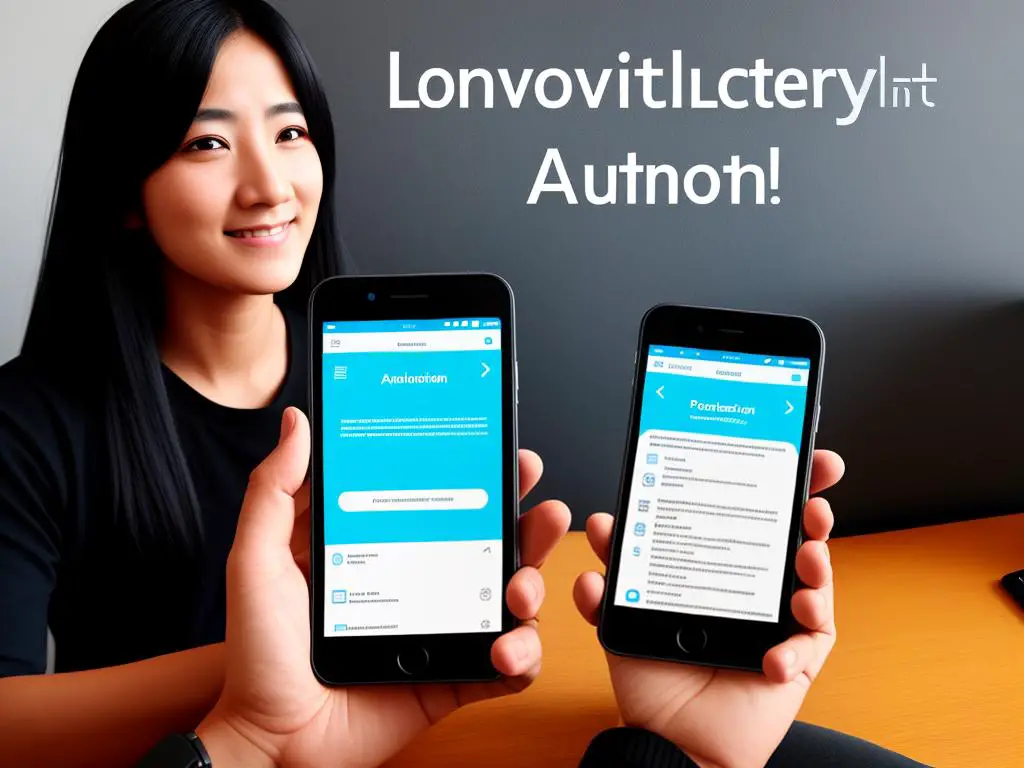As we embark on a new age of artificial intelligence, novel ways of enhancing human learning (Enhanced Language Learning) abilities are constantly emerging. One of the front-runners in this endeavor is AgentGPT, an advanced language model developed by OpenAI.
To the uninitiated, understanding this technology might appear to be a daunting task, but harnessing its potential is simpler than it seems. This discourse aims at demystifying AgentGPT, its core mechanisms, and its applications in diverse fields, with a keener focus on language learning.
As we delve into the intricacies of how this impressive model aids in teaching grammar, vocabulary, pronunciation, and language comprehension, readers will gain a deeper sense of how they can leverage this technology to their advantage and fast-track their language learning journey.
Understanding AgentGPT and Its Applications
Table of Contents
- 1 Understanding AgentGPT and Its Applications
- 2 AgentGPT in Language Learning
- 2.1 The Transformative Impact of AgentGPT on Language Learning
- 2.2 The Power of Digital Tutoring: AgentGPT In Language Learning
- 2.3 Harnessing AgentGPT for Grammar Mastery
- 2.4 Augmenting Vocabulary with AgentGPT
- 2.5 AgentGPT: A Support for Accent and Pronunciation
- 2.6 Promoting Language Comprehension Through AgentGPT
- 2.7 AgentGPT: A New Era in Efficient Language Learning
- 3 The Advantages and Limitations of Using AgentGPT for language learning
- 4 Case Studies and Testimonials
Understanding AgentGPT: An Intricate Model of Text Generation
AgentGPT is a product of OpenAI, an artificial intelligence research institute. The model, as the name suggests, uses the Generative Pretrained Transformer (GPT) architecture for text generation. GPT-based models are essentially large neural networks with an immense capacity for comprehension and text generation.
Understanding the foundational technology of AgentGPT requires learning about transformers, a type of neural network architecture that underpins this system. Transformers use self-attention mechanisms, allowing them to consider the context of a piece of text rather than just its current state. This unique ability enables AgentGPT to generate high-quality, human-like text that is contextually relevant.
OpenAI, the brain behind AgentGPT, has trained it on a large amount of internet text. However, AgentGPT doesn’t know where its training data comes from. It doesn’t know anything about specific books, documents, or sources by identity. The model doesn’t have the ability to access or retrieve personal data unless it’s been fed into the model during the conversation. Highlights of this technology are generalized capabilities, robust performance, and adaptable learning.
Applications of AgentGPT: From Small Talks to Serious Businesses
The scope of AgentGPT’s application extends beyond simply producing human-like text. The capabilities of GPT models, including AgentGPT, can be optimized across various fields. They can be used in customer service to generate automated responses, in the healthcare industry for preliminary symptom assessments, in programming to detect bugs, and more, all thanks to their ability to understand and generate logical, context-sensitive responses.
Exploiting AgentGPT for Language Acquisition
AgentGPT, an advanced tool powered by OpenAI, introduces a revolutionary approach to learning languages. The model’s in-depth comprehension and unique adaptive learning characteristics can be utilized at various stages of language acquisition, making it a potent multilevel instrument.
Novices in a language can take advantage of AgentGPT’s ability to generate basic sentences relative to the context in their target language, aiding them in the mastery of fundamental vocabulary and sentence formation. The interactive capabilities of the GPT model allow learners to participate in simulations of realistic conversations, ultimately fostering better language fluency and confidence.
When it comes to those at the intermediate and advanced stages of language learning, AgentGPT can be a valuable aid in refining their expertise. With its capacity to comprehend intricate sentence structures and provide superior, context-sensitive text, learners can become familiar with an expanded array of sentence constructions, idioms, and phrasal expressions.
Moreover, the self-enhancement feature of GPT models results in a progressively customized learning experience. The model engages continuously with the learner, discerning areas of weakness in comprehension or expression, and tailors its responses to address and strengthen those areas.
Utilizing AgentGPT for language learning is undoubtedly influential, but it’s crucial to note that it does not eliminate the necessity for human educators or classical learning methods. As with any tool, its potential is maximized when used in conjunction with other resources, taking advantage of its distinctive features while also embracing the instinct and creativity inherent in human instruction.

AgentGPT in Language Learning
The Transformative Impact of AgentGPT on Language Learning
Developed by OpenAI, AgentGPT is an artificial intelligence model at the forefront of language processing advancements. By capitalizing on the boundless potential of machine learning technology, AgentGPT introduces an innovative approach to language learning – offering unique, personalized, and adaptive experiences for linguistic trainees.
The Power of Digital Tutoring: AgentGPT In Language Learning
For language learners, AgentGPT can serve as a virtual instructor or conversation partner, providing valuable and immediate feedback. This allows the learner to engage in consistent, intensive interaction in the target language, which is critical for achieving language fluency.
Emphasizing natural language processing, the agent is capable of understanding, generating, and responding to human speech, facilitating a more in-depth interaction than typical language learning apps.
Harnessing AgentGPT for Grammar Mastery
Focusing on grammar, the core foundation in learning any language, AgentGPT excels. It offers detailed explanations of dense grammatical rules and provides instant corrections to learners’ mistakes.
By using transformative learning algorithms, the model can generate an impressive number of example sentences, helping learners to understand complex grammatical concepts in various contexts. Unlike traditional learning textbooks that can become dated, AgentGPT accesses up-to-date language usage, thus giving learners exposure to contemporary language dynamics.
Augmenting Vocabulary with AgentGPT
On the vocabulary front, AgentGPT can be an invaluable tool. It can create personalized vocabulary lessons and provide in-context application of new words and phrases, enhancing comprehension and retention of new vocabulary. The AI model germinates examples that aid in understanding subtle nuances and usage of vocabulary, often the toughest hurdle in language learning.
AgentGPT: A Support for Accent and Pronunciation
For pronunciation and accent training, AgentGPT is an unmatched ally. Future versions of the model may be equipped to provide speech recognition and feedback, facilitating learners’ pronunciation practices. The adaptable nature of machine learning would allow AgentGPT to guide learners through the subtle nuances of accent, tone, and pronunciation in their target language, closing a gap often faced by online language learners.
Promoting Language Comprehension Through AgentGPT
Language comprehension refers to skills ranging from the understanding of spoken language, interpretation of written text, to the ability to express ideas fluently and coherently.
AgentGPT’s potential to generate human-like text can be harnessed to improve language comprehension skills speedily. Whether the user wants to practice reading comprehension, listen to a text being read out loud, or engage in conversation, AgentGPT offers a range of scenarios that can accommodate these needs.
AgentGPT: A New Era in Efficient Language Learning
The innovative tool AgentGPT is revolutionizing language learning. By facilitating consistent interaction in a foreign language for learners, it offers customized, direct feedback. It is equipped to teach grammar, vocabulary, pronunciation, and comprehension, radically expediting the language learning process and making it more engaging.
This is a clear manifestation of how artificial intelligence can foster adaptive learning, reform educational practices, and possibly change the entire teaching landscape.

The Advantages and Limitations of Using AgentGPT for language learning
Indeed, AgentGPT is not just another AI model, but possibly the future of language learning. It comes with a suite of benefits and capabilities that make it a game-changer in this field.
Personalized Learning
One significant benefit of AgentGPT is the level of personalization it offers. AgentGPT can provide individualized attention to each learner, adapting to their pace of learning, their strengths, and areas requiring improvement.
For instance, if a user struggles with specific grammatical structures, AgentGPT can focus on this area until the user feels confident. This tailored approach can help improve learning outcomes by addressing each learner’s unique needs and learning styles.
Enhanced Accessibility
AgentGPT also offers increased accessibility. As an AI model, it’s accessible all hours of the day and can be used from anywhere with an internet connection. This means language learning is no longer confined to classroom settings or specific time slots. It’s especially beneficial for those who have packed schedules, reside in remote locations, or have limited access to language learning resources.
Cost-Effectiveness
Using AgentGPT can also be relatively cost-effective when compared to traditional language learning methods. Unlike hiring a private tutor or enrolling in a course, using AI for language learning typically involves a one-time software purchase or an affordable monthly subscription, making language learning more accessible to a wider range of people.
Lack of Human Interaction
Learning a language isn’t just about knowing vocabulary and grammar rules. It’s also about understanding cultural contexts, picking up on nuances, and interacting with native speakers. However, AgentGPT, as advanced as it may be, cannot fully replicate the experience or the cultural understanding native speakers bring to conversations. The lack of human interaction might limit the depth of language learning when using AI models like AgentGPT.
Potential Misinterpretations
Language is often complex, and sometimes even human beings misinterpret or misunderstand sentences. AI models like AgentGPT are not immune to this. Whether it’s idioms, sarcasm, or culturally specific phrases, there’s always the potential for misinterpretations. While AI continues to develop, these occasional misunderstandings could potentially hinder the language-learning process.
Inability to Correct Pronunciation
AgentGPT can provide excellent feedback on grammatical mistakes or syntax errors in written language, but it lacks the ability to correct pronunciation errors. This aspect of language learning is critical, especially when learning languages with sounds and tones not present in one’s first language.
In examining the combination of benefits and constraints, it’s fair to say that AgentGPT can act as a valuable add-on to conventional language learning techniques. Through its application for honing and refining skills, and procuring immediate feedback, users can truly capitalize on this technological progression. Nevertheless, to attain absolute language proficiency, it’s advisable to mix this AI-facilitated resource with human interaction, exposure to native language speakers, and experiences immersed in the culture.

Case Studies and Testimonials
The Role of AgentGPT in Language Learning Scenarios
AgentGPT has found usage in diverse language learning settings. These include personalized private tuition sessions, as well as expansive online platforms providing language lessons to a global user base.
A notable example is the adaptation of AgentGPT by a leading online education service in their English language course. The inclusion of this tool reputedly enhanced the users’ understanding and dialogue skills. One month after integrating AgentGPT, the service carried out surveys, revealing that 90% of the students experienced a rise in confidence in their English speaking and comprehension skills. This improvement was largely assigned to AgentGPT’s contextually aware and dynamic conversation proficiencies.
An alternative case involves a Spanish language learning application. The app, by integrating the Spanish model of AgentGPT into its chat functionality, was successful in creating a context-heavy, interactive, and captivating learning experience for the language. As per feedback from in-app surveys, over 85% of users believed that AgentGPT augmented their language prowess and helped them grasp complicated Spanish sentence forms.
AgentGPT in Education Institutions
Educational institutions are also beginning to leverage AgentGPT in their language learning programs. A case in point is a globally recognized university that used AgentGPT to support its international students in mastering academic English. The university reported a significant improvement in students’ written English skills, along with advancements in reading comprehension and speaking abilities.
Testimonials from Learners and Educators
Feedback from learners and educators using AgentGPT has been overwhelmingly positive. One user from a language learning platform stated, “With AgentGPT, I am no longer afraid to make mistakes. I can practice at my own pace without feeling judged. It is like having a patient teacher by my side all the time.”
An educator from a secondary school said, “AgentGPT is a game changer. It beautifully caters to different proficiency levels and learning paces. It has helped me manage my diverse learner group more efficiently.”
Many learners highlight AgentGPT’s ability to provide instant feedback and continuously engage in conversation, items they found beneficial for consistent language practice and improvement. Meanwhile, educators appreciate the tool’s capacity to supplement their teaching strategies and deliver personalized attention to a large number of students.
Overall Conclusion
Overall, it’s clear that AgentGPT demonstrates the potential to enhance language learning experiences. As more platforms and institutions harness its capabilities, the number of successful implementations and satisfied users is likely to continue to rise.

As we look to the future of language learning, it is undeniably intertwined with the continued evolution of AI, with AgentGPT exemplifying the harmonious pairing of artificial intelligence and education. There are, of course, aspects that require attention, such as the need for a human touch and the potential for misinterpretations.
Yet, the value that AgentGPT brings to language learning in terms of personalization, accessibility, and cost-effectiveness cannot be overstated. We hope that the inclusion of real-world case studies and testimonials has given readers clear insights into how this innovative technology is actively deployed for language learning endeavors. As we continue to adapt and innovate, it’s clear that AgentGPT is set to play a pivotal role in revolutionizing language learning experiences and outcomes.

I’m Dave, a passionate advocate and follower of all things AI. I am captivated by the marvels of artificial intelligence and how it continues to revolutionize our world every single day.
My fascination extends across the entire AI spectrum, but I have a special place in my heart for AgentGPT and AutoGPT. I am consistently amazed by the power and versatility of these tools, and I believe they hold the key to transforming how we interact with information and each other.
As I continue my journey in the vast world of AI, I look forward to exploring the ever-evolving capabilities of these technologies and sharing my insights and learnings with all of you. So let’s dive deep into the realm of AI together, and discover the limitless possibilities it offers!
Interests: Artificial Intelligence, AgentGPT, AutoGPT, Machine Learning, Natural Language Processing, Deep Learning, Conversational AI.

